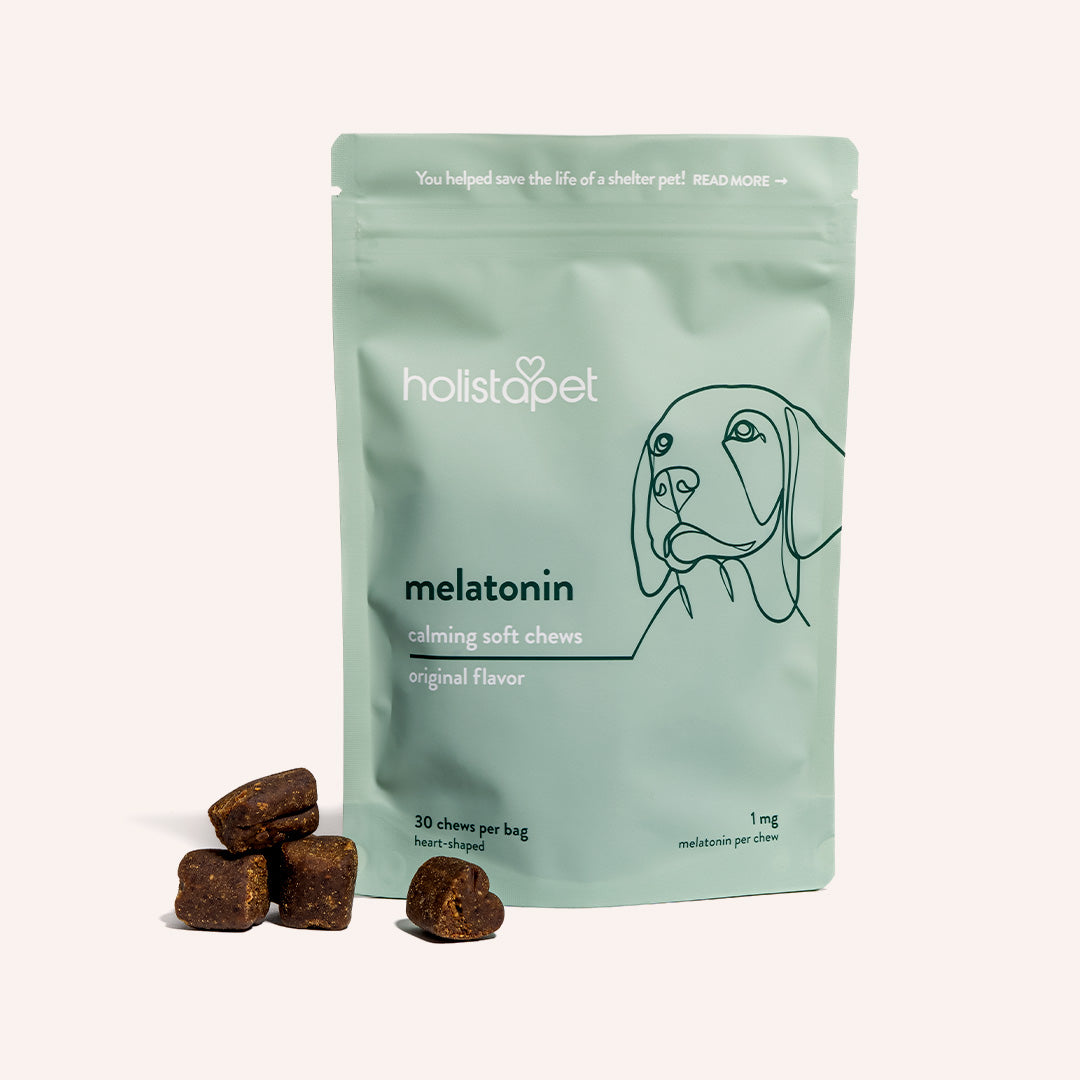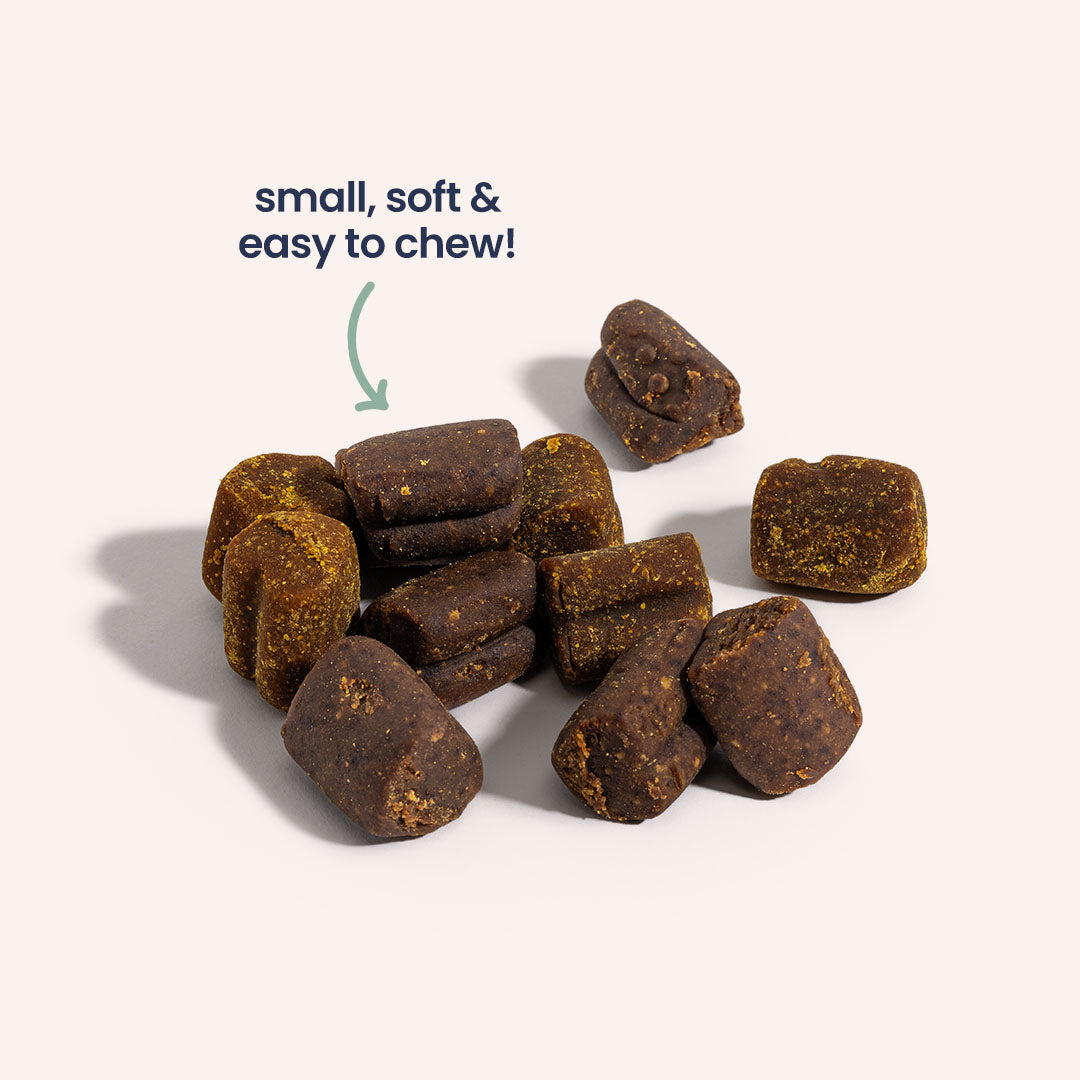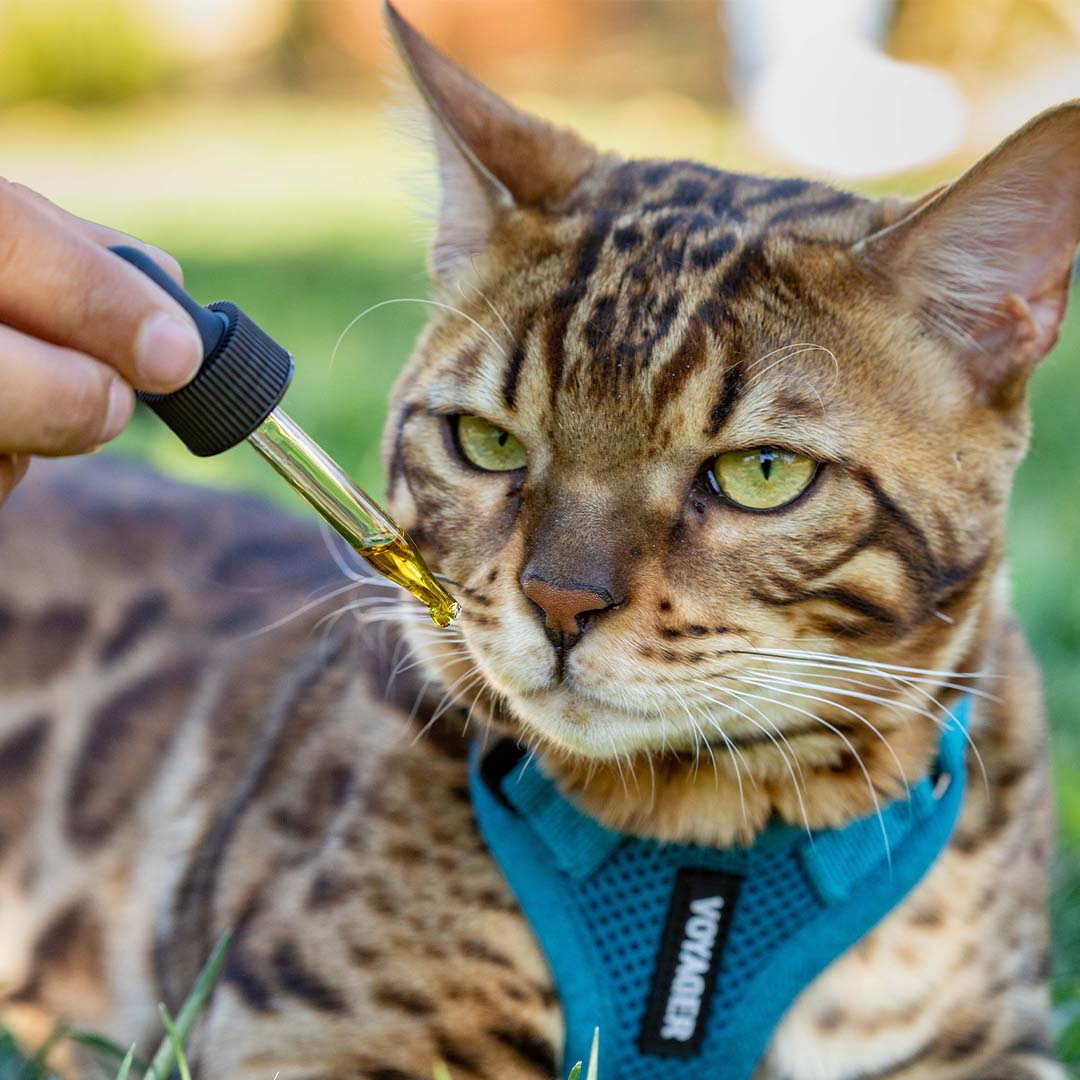Herding dogs are some of the most devoted and hard-working breeds in the world, with their innate sense of leadership and courage. Herding dog breeds have an extensive history of working on farms, herding other animals, and using their physical abilities to control and protect a group of livestock. If not on the farmlands, you can find herding dogs working with police officers providing protection and investigative skills.
Despite their working background, herding dogs also make wonderful family dogs with their gentle and kind personalities. Let's take a closer look at herding dogs, how to care for them, their nutrition, and much more!
What Are Herding Dogs?
Herding dogs are known for their intelligence, high amount of energy, and strong herding instinct. As the name suggests, herding dogs were originally used to ensure farm animals did not stray away too far from home. These dogs were an integral part of the farm, ensuring the safety of their livestock.
Aside from their background working on the farm, herding dogs are amazing athletes and great in dog competitions. They need plenty of space and time to exercise to stay physically and mentally happy. But at the end of the day, they still enjoy cuddling up next to their owners on the couch!
Many different dog breeds are labeled under the herding group with a wide range of physical features and characteristics. Just to name a few - there is the Australian Shepherd, Bouvier des Flandres, Collie, German Shepherd, Puli, and many more.
Are Herding Dogs Good Family Pets?
Herding breeds make for some of the most loyal and friendly pets you can find. Generally, herding breeds are always happy, energetic, and love to please their owners. Although they do enjoy cuddling up to you at the end of the day, herding breeds do best with an active family that is always on the move.
The typical herding dog loves spending time outside, playing in the yard, and using all their energy in any way possible. They are fast runners and enjoy playing fetch, tug-of-war, or tag with children!
Herding breeds tend to have gentle, patient, and sweet temperaments, such as the Collie. Collies are one of the most popular herding dog breeds, most famously depicted in the television show Lassie. This breed is highly trainable and is dedicated to keeping their family happy.
Aside from the Collie, other herding breeds such as the German Shepherd, Australian Cattle Dog, and many others are also fantastic family pets. The key is always to train your dog when they are young to learn how to behave properly as soon as possible. With time and patience, any herding dog can become a family's best friend.
Are Herding Dogs Easy to Care For?
As with any breed of dog, they require specific care regarding nutrition, grooming, exercise, affection, and medical care. Herding dogs are rather intelligent and self-sufficient dogs, but they do require a good amount of care and grooming.
One of the most important things a herding dog needs is plenty of space to exercise. Herding dogs are used to being out in wide-open fields herding livestock, so they need access to a large open space to roam. Whether it's a dog park or a large backyard, herding dogs need to stretch their legs and run around as if they were bringing home the cows.
Aside from keeping their physique in shape, keeping a herding dog's mind sharp is also important! Training programs can be a fun stimulus for your dog that'll keep them on their toes and their minds active. They love learning new tricks and skills, and it's a great way to bond with your canine friend.
Depending on the breed of the dog, grooming requirements can vary. For example, an Old English Sheepdog is fluffy and can take a lot of work and grooming to keep their hair healthy and smooth. But with a Norwegian Buhund, they have shorter and more manageable hair to deal with.
Herding Dog Diet and Exercise
When determining a dog's diet, there are many factors to keep in mind, such as their weight, size, age, and physical activity level. These things can vary depending on the type of herding dog, whether you have a Border Collie or a German Shepherd.
Typically, you should feed your herding pup more often since they grow at a much faster rate when they are younger. It's always best to give your puppy high-quality dog food to ensure they receive all the nutrients they need to grow big and strong.
Another thing to keep in mind with a dog's diet is if they have any allergies. Some pets may be allergic to certain ingredients, which can lead to discomfort or a more serious health condition. For any dog breed, it's best to check in with your vet to ensure they are getting the best and most appropriate food possible.
As far as exercise, herding dogs typically have a lot of energy, so they need plenty of exercise. Taking them on daily walks, to the dog park, on hikes, or letting them run beside you as you bike are all great activities you can do with your herding dog. Having access to a large yard is also important so they can exert all of their pent-up energy running around outside or playing with their toys.
Typical Nutrition for Herding Dogs
Nutrition is a crucial part of keeping your herding breed healthy and happy. A well-balanced diet should include plenty of protein, vitamins, minerals, fatty acids, and carbohydrates. These can be found in high-quality dog foods that use real ingredients such as meat and veggies.
Herding dog breeds typically consume a lot of protein due to their size and physical activity level. Some excellent protein options include fresh tuna, eggs, organic meat, chicken breasts, vegetables, and cooked grains.
An adult herding dog does best with two or three meals a day to prevent overeating and obesity issues. Always make sure your dog has plenty of fresh, clean water available as well, as some herding dogs can get dehydrated from being outside too long.
Most Popular Herding Dog Breeds
With over 30 different breeds of herding dogs recognized by the American Kennel Club, a handful of breeds tend to be more popular than others. Here are a few of the most common breeds!
Old English Sheepdog
The Old English Sheepdog is a gentle and kind-hearted dog with shaggy fur and an intense, ringing bark. They are great with children and love lounging around with the family.
Shetland Sheepdog
The Shetland Sheepdog is a small yet energetic breed known for its intelligence and loyalty. From Scotland's island of Shetland, this Sheepdog resembles its larger cousin, the Collie.
Belgian Malinois
The Belgian Malinois is a courageous and hard-working breed standing at a dignified 26 inches tall. Belgian Malinois dogs are fantastic companions, always trying to please their owners and get the job done.
Cardigan Welsh Corgi
The Cardigan Welsh Corgi is a short yet big-hearted dog breed known for its sweet and affectionate personality. They are friendly with other pets and are wonderful with little kids.
Australian Cattle Dog
The Australian Cattle Dog is a very curious and attentive breed. They have incredible agility and strength and almost unlimited energy, making them fantastic running partners.
Australian Shepherd
The Australian Shepherd is a beautiful and exuberant breed known for its incredible work ethic. Australian Shepherds are medium-sized but can easily control a large herd of livestock with no trouble.
German Shepherd
One of the most popular breeds in the world, the German Shepherd is a confident and poised dog breed known for its unmatched strength and agility. This larger dog breed stands at about 26 inches tall and is an incredible working dog alongside police and other people for protection and other canine skills.
Additional Herding Dog Breeds
Currently, the American Kennel Club recognizes 31 different herding dog breeds. Each breed is unique and has a variety of different physical characteristics. Here is the current list of herding dog breeds.
- Australian Cattle Dog
- Australian Shepherd
- Bearded Collie
- Beauceron
- Belgian Laekenois
- Belgian Tervuren
- Bergamasco Sheepdog
- Belgian Malinois
- Belgian Sheepdog
- Berger Picard
- Border Collie
- Bouvier des Flandres
- Briard
- Canaan Dog
- Collie
- Entlebucher Mountain Dog
- Finnish Lapphund
- German Shepherd Dog
- Iceland Sheepdog
- Miniature American Shepherd
- Norwegian Buhund
- Old English Sheepdog
- Pembroke Welsh Corgi
- Polish Lowland Sheepdog
- Puli
- Pumi
- Pyrenean Shepherd
- Shetland Sheepdog
- Spanish Water Dog
- Swedish Vallhund
Final Thoughts - Herding Dogs
From the Border Collie to the Pembroke Welsh Corgi, the herding dog breed is a vast and exceptional type of dog that promises life-long loyalty, intelligence, and companionship. With their herding background, this breed of dog is energetic and tends to enjoy a life of sports, physical activity, and plenty of time outside. But they also like to bond with you in the living room curled up on the couch at the end of the day.
Whether you live on a farm and work with livestock or you have access to a large backyard, a herding dog can add plenty of excitement and fulfillment to your life!








![Probiotics For Dogs [Soft Chews]](http://www.holistapet.com/cdn/shop/files/Probiotic-Infographic-1_472d7a29-e30c-435a-9638-1365d8c3a9f9.jpg?v=1725384841&width=104)















![Herding Dogs [The Most Popular Herding Breeds + Complete List]](http://www.holistapet.com/cdn/shop/articles/178.jpg?v=1716918991&width=1500)
![Alaskan Husky Dog Breed Temperament & Personality [Full Guide]](http://www.holistapet.com/cdn/shop/articles/181.jpg?v=1716919064&width=500)
![Manchester Terrier Dog Breed Temperament & Personality [Full Guide]](http://www.holistapet.com/cdn/shop/articles/170.jpg?v=1715220441&width=500)












Leave a comment
This site is protected by hCaptcha and the hCaptcha Privacy Policy and Terms of Service apply.